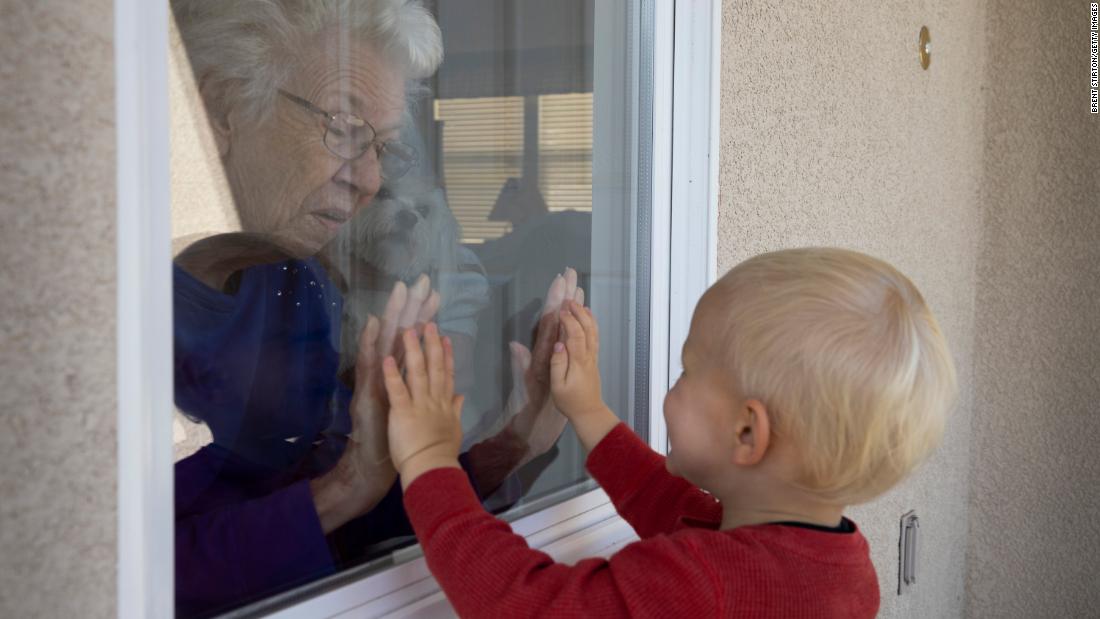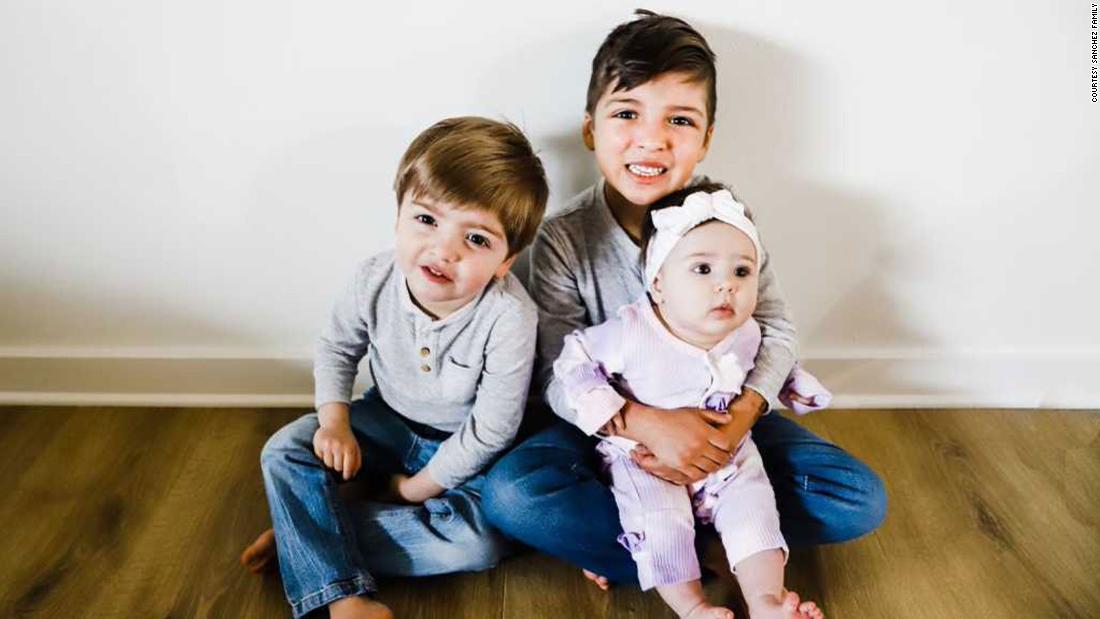Natalie Sanchez heard it in her children’s voices when their birthday parties were canceled and saw it on their faces when they couldn’t play with friends.
It was more than just simple disappointment. It was fear that the world they once knew might have changed forever.
“I think that it’s something that’s going to kind of scar them. I don’t think that they’ll forget,” says the mom of three in Little Rock, Arkansas. “In our life, there was a before and an after this.”
When the novel coronavirus started spreading, many of us hoped the surge of widespread shutdowns would turn out to be short-lived — little more than a blip on our collective radar. Now, a year into a worldwide disaster that’s upended our society and left more than 2.6 million people dead, the conversation has changed.
The moments when it seemed like all of this could be momentary slipped away long ago. It’s no longer a question of if this pandemic will shape an entire generation. But how.
Some experts have started to use a new term to talk about seismic changes they’re seeing — changes that could cause ripple effects in children’s lives far into the future.
They’ve given a new name to the world’s newest generation: Gen C, or Generation Covid.
“Covid is such a big mega-event in human history,” says Haim Israel, head of thematic investing for BofA Global Research, who described Gen C in a widely cited report last year. “It’s going to be the most defining moment for this generation.”
Who’s in Gen C?
The term Gen C first started popping up in media reports early in the pandemic. More recently, investment analysts like Israel and children’s rights advocates have taken to using variations on the phrase.Defining a generation isn’t simple. The names we use to talk about groups of people born in any given period can change over time — sometimes because what seemed to be a defining event later turns out to be less influential than other forces at play, sometimes because a different term gains momentum and sticks.
Israel’s definition of Gen C includes children born from 2016 to the mid-2030s — because, he says, the changes we’re witnessing are so dramatic that even kids born years after the pandemic ends will still see it shaping their lives.
“They’re going to be different,” Israel says. “They’re being defined by a completely new world.”
Asked who comprises Gen C, experts in other fields shared different guidelines with CNN.
A senior adviser at the United Nations Children’s Fund said all children should be included — especially those who’ve had points of transition in their lives disrupted. A sociology professor said college students shouldn’t be left out. A mental health expert noted children aged 7-9 are particularly vulnerable.

Everyone agreed that we need to keep a close eye on what’s happening to kids — and that children born during the pandemic and living through major developmental milestones right now are an important part of this generation.
“The first 1,000 days are so critical in development,” says Jennifer Requejo, a senior adviser for health and HIV at UNICEF. “While countries are focusing on a response to this pandemic, it’s important they don’t lose sight of these vulnerable time periods in children’s lives. There are some very important issues that can’t be set aside.”
How the world looks to this new generation’s youngest members
A baby stares wide-eyed at the camera as familiar music plays.
It’s the tune of the classic children’s song — “If You’re Happy and You Know It.” But the words in this TikTok version are different.
“If you’re a pandemic baby and you’ve been in quarantine your whole life so you get overstimulated by everything ’cause all the strangers that you see have masks on, and you’ve never really had a playdate in your life, clap your hands.”
The video has been viewed more than 130,000 times. And on TikTok, which also features clips of babies searching for hand sanitizer and looking longingly out windows during lockdown, it’s become a way to connect for parents who are using moments of levity to get through the daily uncertainties of raising a baby in the pandemic. The TikTok version of the song has been used as background music for more than 10,000 videos — and the number keeps growing.
“We were so shocked,” says Becca Straus, who shared the video of her son, Emmett, clapping as her husband, Alex, sings, but never expected it to resonate with so many people.
Emmett was born in April 2020, just weeks after schools, businesses and borders around the world started shutting down. Straus, who lives in Bellingham, Washington, says her family has been trying to teach him social skills at home and take the situation in stride. But they do wonder what will happen when children like Emmett, who’ve spent most of their lives in isolation, are suddenly exposed to the wider world.
“We’re curious how all the community of kids are going to be when they finally can get together,” she says. “They’re all going to get together in a room and wonder, ‘Who are all these kids? What do I do? How do I go up to them and play with them?'”
It’s a concern many parents of young children in Gen C have shared with CNN.
Sanchez says she worries her 3-year-old and 6-year-old sons are going to be overwhelmed when they go back to school.
“My fear, because I see it in myself, is they’re just becoming more antisocial,” she says.

But she also sees a positive side.
“My hope is they’ll be a stronger generation,” she says, “because we’ve been through a lot in a year.”
Frank Danko, a 27-year-old supermarket manager in New York, says his family spent far more time together due to the pandemic than they would have had a chance to do otherwise. That gave him a chance to have more one-on-one time with his daughter Adriana, who’s now nearly nine months old. No matter what happens next, he says, Adriana and the other members of her generation will experience it together.
“My baby, she’s going to grow up however the world is,” he says. “It’s what she knows.”
The pandemic will affect kids in different ways
We don’t know how the world will look post-pandemic. That could take months, years or even decades to discern.
We do know that parents are worried, many kids are hitting the wall and the most vulnerable children are even more at risk. The president of the American Academy of Pediatrics warns that what started as a public health emergency has become a mental health crisis for children and adolescents. And UNICEF says its data “uncover a devastating and distorted new normal for the world’s children.”
But scholars say dissecting the problems of the present isn’t the only way to think about Gen C’s future. There’s also a lot we can learn from the past.
“I’m seeing so many similarities…just in terms of the inequalities that were there all along but become starkly apparent during a time of crisis,” says Lori Peek, director of the Natural Hazards Center at the University of Colorado Boulder. For their book, “Children of Katrina,” Peek and co-author Alice Fothergill followed hundreds of children to see how the devastating 2005 storm shaped their lives.


